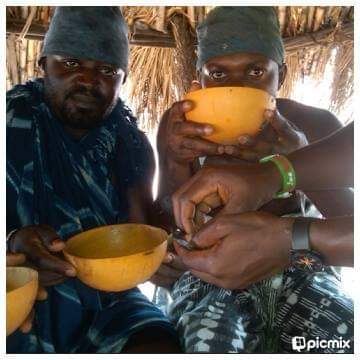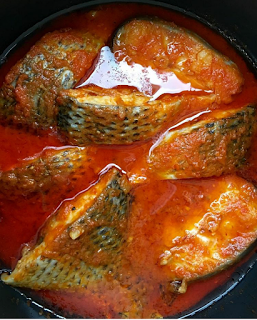Jukun Wanu mouth watering foods and berevages
|
Getting your Trinity Audio player ready...
|
By HRH Dr. Sabo Azyjidoku Emmanuel
In community after community, there are kinds of foods and beverages that are so common with the people. These are culturally recognised as their delicacies or specialties. The menu of a given people tell much of their emotional, physical or psychological wellbeing. The food sensitivity as either allergies or sensibilities do vary from one monoculture locality to an enlarged community, – a cosmopolitan, town or city. Thus, every tribe or ethnic group came to adapt, adopt those delicacies as dictated by customs of such deified authorities as handed over from generation to generation.
Jukun Wanu are so fussy about foods generally. They do not guzzle drinks neither. The way and manner in which foods and drinks are taken, call for reverence for the people and their culture. For instance, the Wanu people do not eat (or are allergic to) some species of fish such as “abamise”, “atapwii,” “anbwobwandu” (these species of fish must have probably gone extinction as they are not commonly seen in our waters these days); some bush rodents, such as rats, crabs, snakes, snails; some solid foods such as “akpu,” some noodles; some stale foods known as “akyi-kuu,” some stale beverages; the likes of gruel, porridge, bevvy-classified as “abekya,” “angha soh”, and “asha wa jehjeh” (sour and bitter liquid beverages), and so on and so forth. They can be considered as taboos or prohibitions.


On the table, the Wanu speaking people of the Jukunoid are therefore, so meticulous about what to eat and what to drink in their daily life. The contemporary cosmopolitan society life has not been able (in toto) adulterated the Wanu table specialties as to what to eat and drink. The preparations of these basic necessities of wants, right from the compartalized cooking processes up to the place setting; hygienically, are considered. And so, as dandy as the Wanu people are; they are; ‘a carry all’ personalities.
Any food described as mouthwatering is all about the taste. It is delicious and worth salivating for. It looks and smells so good that one would like to eat it (almost) immediately. Besides, it is usually quite tempting and people eat with gusto. The following delicacies are only, a select few, of the menu that abound in Wanu locality. These types of foods or drinks as the case is, and due to their specialties, can somehow be categorized as “table d’hote”, and “a la carte” and assorted brands in modern restaurants. Among zillions of palatable dishes that can satisfy aromatic desire and also quench thirst, be they, sauce, soups, beverages or bevvies are: “apyem,” “abubo-zyenta;” “akeh-zye,” “abubo-zye-amweh,” “abubo-wa shishi,” “abubo-doh,” “abubo-duh,” “abubo-kpekpele;” “abubo-weh;” “agyagba;” “anburu;” “abaah;” “akyi-besuu;” “akyi-suu;” “akyi-rogo;” “akyi-shikafa”, “akyi-lankpa,” akyi-zaa”, “akyi-zumweh;” “akyi-zuku”, “akyi-wanaka” (at weeding occasions), “asoh”, “asha,” “avombo,” “ambo;” “asuu wa nehneh,” “asuu wa fehfeh’, “sa gbache” (a miniature bevvy (burukutu) beer brew). Kya wu,” etc.
Some Wanu sons and daughters may be worried sick in their quest to know exactly what these types of foods and drinks are; currently. Here are some probable equivalents of menu of other nationalities. For instance, “apyem” in Hausa stands for “danwake”, “abubo-zyenta (fresh fish soup/sauce super grade); in Hausa is” miyan danbu” (ragout in English), here, the Hausa people use meat to make it a thick soup/sauce (stew) while the Wanu Jukun sometimes use a fairly weak fish (the likes of “anusa” and “andalika”); without vegetables/spices as seasonings) to make the dish for table; “abubo-zye-amweh;” is fresh fish sauce/soup; “abubo-wa-shishi”; is dry fish or dry meat soup/sauce; “abubo-weh”; meat sauce/soup/(stew); “anburu;” when prepared looks like noodles, “abaah,” akafa” as foods like: “madidi” in Hausa, “akpakpa” in Tiv, “okpa” in Igbo, Yoruba or some languages of the South. There are also “akyi-suu,”- pounded yam,” akyi-besuu,” from yam flour, “akyi-rogo’ from cassava flour,” akyi-lankpa from maize flour. For beverages are: “asoh,”- gruel, porridge, pap; “asha-bevvy, beer (burukutu).
As already stated or mentioned, some of these food specialties can be occasional, ceremonial, steady or regular menu. They are sometimes treated as gifts, souvenirs, packaged as fast foods. They can be trendy omena stuffs. Generally, in a typical Wanu locality, beef is not a major soup requirement. Fish dominates in the cooking process in company of other condiments for a superb sauce to give flavor to the dish. The Wanu dishes have medicinal properties which support their emotional, physical and psychological well being. God have mercy, hardly can Wanu (proper, I mean those whose major source of protein-is fish) be attacked at infancy by any of the dreaded six killer diseases. Malaria in particular is neutralized in the physique of these aquatic dwellers called Wanu (Awanu).
Mark you, this work is not a comprehensive, grub list of what and all that Wanu people eat and drink and so the presentation should not be treated as though from the Grub Street. This effort, attempt, in some way can reawaken the consciousness of the locales. Noodles and some fast foods are seriously making this generation to pay little attention to the people’s cultural foods/beverages, bevies that these communities cherish. Wanu people should endeavour to buck the trend. It is a dearth of culture in the Wanu vicinity. The Wanu society still maintains decency. It does not discourage alcoholism. Rather, it fights addiction to alcohol.
Avail yourselves by getting close to nature and extract the bountiful benefits of it. Ageing gracefully is an attribute of closeness to nature; via eating, drinking, habitation and also having good rapport or friendly intercourse with others. But mind what you eat and drink so as to avert contamination or food poisoning. Be security conscious, (wise) in your habitations as you relate or interact with others. Mind what you say and do, because words/actions are marbles. Heed to this advice as it is your search light. By so doing you are already on track of enjoying the mouth watering foods (delicacies) and beverages of the cultured Jukun Wanu speaking people. Never forget, this can be a pointer to both seasoned and prospective Wanu hoteliers and restaurant managers to retail the richly deserved and desired Wanu cuisines. Economically, the operators are on the pinnacle of good business fortunes.
“Whya de angoyin, o zyji kyi-besuu, wa bubo-zyenta zyjina lo-oh? O ma yi wawa ni, ya di pyu tumatuma, o ma geh yi wanu (awasendo) ni, ze yi wa-oh, u ya di pyu bazyi u kya kyi-besuu wa bubo- zyezenta yoh tuma tuma. O fa ko-oh? Ni ka sha ke nu ta-ah yo, la kyuu (apankyuu) hwo we yi nashoh,”
Attention (Hi or Hello) my dear (beloved) have you eaten your meal of yam flour with fresh fish soup super grade today? If you are a woman go to the kitchen (but sometime kitchen is addressed as “ata-kuna”) now/immediately. But if you are a man (husband), tell your wife to visit the kitchen to cook/prepare your meal of yam flour with fresh fish soup super grade for you now/immediately. Have you heard me? But do not set the table for two only, you might likely have visitors soonest.
NB: This translation is presupposed. Interpretations and transliterations are excusable. Please take note. Promote “Ifye nu Wanu” by your scholarly contributions, too.


